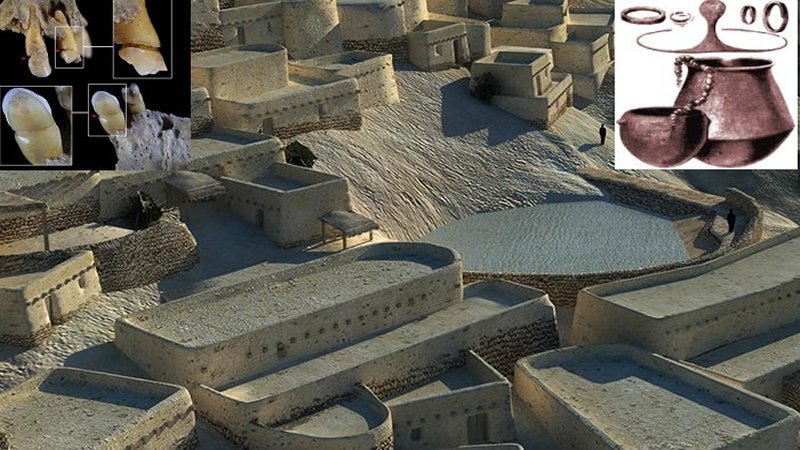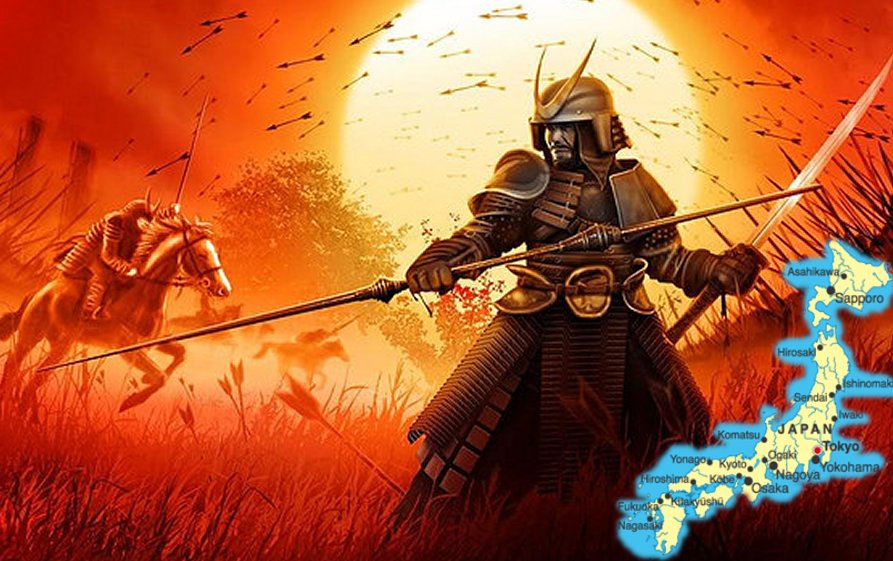The Bushido Code: Centuries-Old Unwritten Code For Ideal Samurai Warrior
A. Sutherland – MessageToEagle.com – Bushido, which literally means “way of the warrior,” is the code of chivalry developed by the warriors in feudal Japan known as the samurai.
During the reign of the shogunates: Kamakura (1185 – 1333) and Ashikaga (1336 – 1573) various samurai clans battled for power.
From about 13th century the samurai began to follow the teachings of Zen Buddhism, Shintoism, and Confucianism and seven most important principles of the Bushido Code became principal guidance in the warrior’s life.
Much more standardized form of the code appeared during the Tokugawa Shogunate, the last feudal Japanese military government, which existed between 1603 and 1867.
The code stressed unquestioning loyalty and obedience, valuing honor above life and helping to be ideal warriors. The Bushido Code includes the most important principles such as courage, integrity, benevolence, respect, honesty, honor and loyalty.
Over many centuries, it has influenced the whole of Japanese society.
 As a code of ethics, the Bushido Code can be successfully utilized and practiced in modern people’s everyday life both professionally and personally.
As a code of ethics, the Bushido Code can be successfully utilized and practiced in modern people’s everyday life both professionally and personally.
The word samurai literally means “one who serves,” and originally referred to domestic servants and later to elite military warriors who provided security and fought for the aristocratic class.
The first samurai could be considered imperial mercenaries.
To Westerners, Samurai are known for having the ability to possess many different characteristics of the bushido code, such as serving people, striving for honor, and doing one’s best in critical situations.
The sword was considered the symbol of the samurai warrior and his soul. Maintaining the bushido code in his heart and mind, was the samurai’s sole purpose in life.
With his sword, the samurai warrior fought to death in battle to preserve the honor of his overlord or his family.
Facing imminent failure or disgrace (suffer torture), the samurai warrior was ready to commit ‘seppuku’ – ritual suicide, originally reserved for samurai.
 As a part of the Bushido Code, ‘seppuku’ – was performed either voluntarily by samurai, when he fell into the hands of their enemies or as a form of punishment for samurai who had committed serious offenses, or performed because they had brought shame to themselves.
As a part of the Bushido Code, ‘seppuku’ – was performed either voluntarily by samurai, when he fell into the hands of their enemies or as a form of punishment for samurai who had committed serious offenses, or performed because they had brought shame to themselves.
If the samurai did not follow the Bushido Code, he had no right to call himself a samurai and deserve respect.
The Bushido Code has changed over the long period of its existence. The religious dominance is not as strong as in ancient times.
However, two of the most important principles of the Bushido Code are still alive: loyalty to country and family.
There are similarities between the Japanese Code of Bushido and the European Knights’ Code of Chivalry, especially in values of how to treat people, but there are also several differences.
Knights of Europe protected lands of their lords for money and loyalty and honor were bought with coin.
For Samurai, to enjoy the honor, he must earn it, according to the Bushido Code.
Written by – A. Sutherland – MessageToEagle.com Senior Staff Writer
Copyright © MessageToeagle.com All rights reserved. This material may not be published, broadcast, rewritten or redistributed in whole or part without the express written permission of MessageToeagle.com
Expand for referencesReferences:
T. Cleary, Code of Samurai
S. Turnbull, The Samurai
Related Posts
-
 Rare Bronze Oil Lamp With A Face Cut In Half Unearthed In Israel
No Comments | May 7, 2021
Rare Bronze Oil Lamp With A Face Cut In Half Unearthed In Israel
No Comments | May 7, 2021 -
 Our Mind: Powerful Force That Influences Our Body, Life And Behavior
No Comments | May 25, 2017
Our Mind: Powerful Force That Influences Our Body, Life And Behavior
No Comments | May 25, 2017 -
 Wolstenholme Towne: Lost Virginia Settlement – Destroyed, Abandoned And Forgotten
No Comments | Apr 20, 2016
Wolstenholme Towne: Lost Virginia Settlement – Destroyed, Abandoned And Forgotten
No Comments | Apr 20, 2016 -
 Humans Evolved Somewhere Else In The Galaxy – We Are Aliens On Our Own Planet – Scientist Says
No Comments | Jun 12, 2014
Humans Evolved Somewhere Else In The Galaxy – We Are Aliens On Our Own Planet – Scientist Says
No Comments | Jun 12, 2014 -
 4,000 Years Ago Women Of El Argar Used Their Teeth As Tools
No Comments | Nov 10, 2020
4,000 Years Ago Women Of El Argar Used Their Teeth As Tools
No Comments | Nov 10, 2020 -
 Study Of Environmental Conditions Of Early Humans In Europe And The Out-Of-Africa Migration
No Comments | Sep 9, 2021
Study Of Environmental Conditions Of Early Humans In Europe And The Out-Of-Africa Migration
No Comments | Sep 9, 2021 -
 What Would Really Happen If We Tried To Send Humans To Venus?
No Comments | Sep 11, 2017
What Would Really Happen If We Tried To Send Humans To Venus?
No Comments | Sep 11, 2017 -
 Asteroids Have Days And Nights But The Yarkovsky Effect Is Dangerous
No Comments | Apr 5, 2018
Asteroids Have Days And Nights But The Yarkovsky Effect Is Dangerous
No Comments | Apr 5, 2018 -
 350-Year-Old Remains Unearthed In A Stone Age Site In Portugal
No Comments | Feb 22, 2022
350-Year-Old Remains Unearthed In A Stone Age Site In Portugal
No Comments | Feb 22, 2022 -
 El Mirador: Ancient Pyramids Hidden In The Lost City Of The Maya
No Comments | Jun 5, 2016
El Mirador: Ancient Pyramids Hidden In The Lost City Of The Maya
No Comments | Jun 5, 2016

